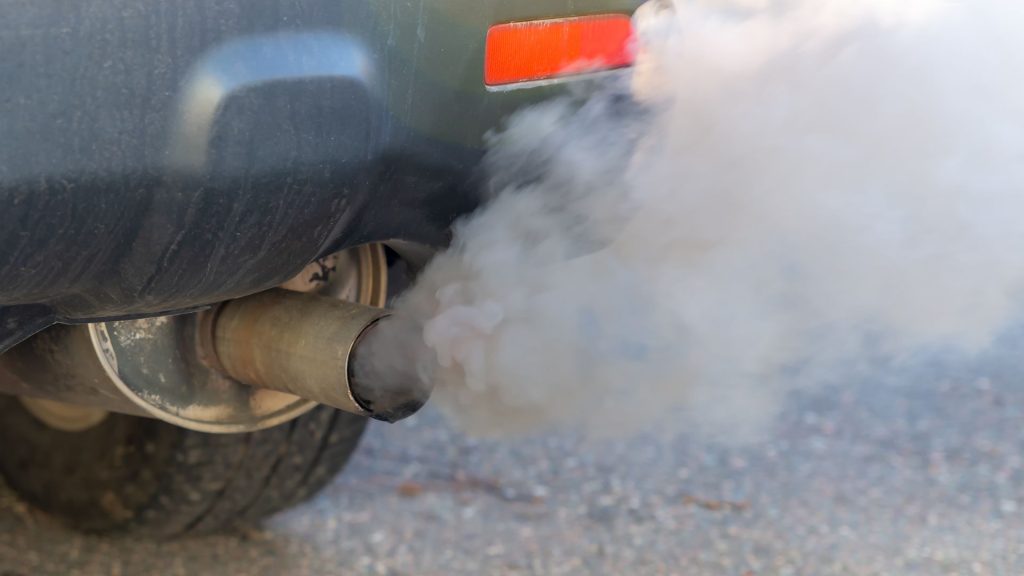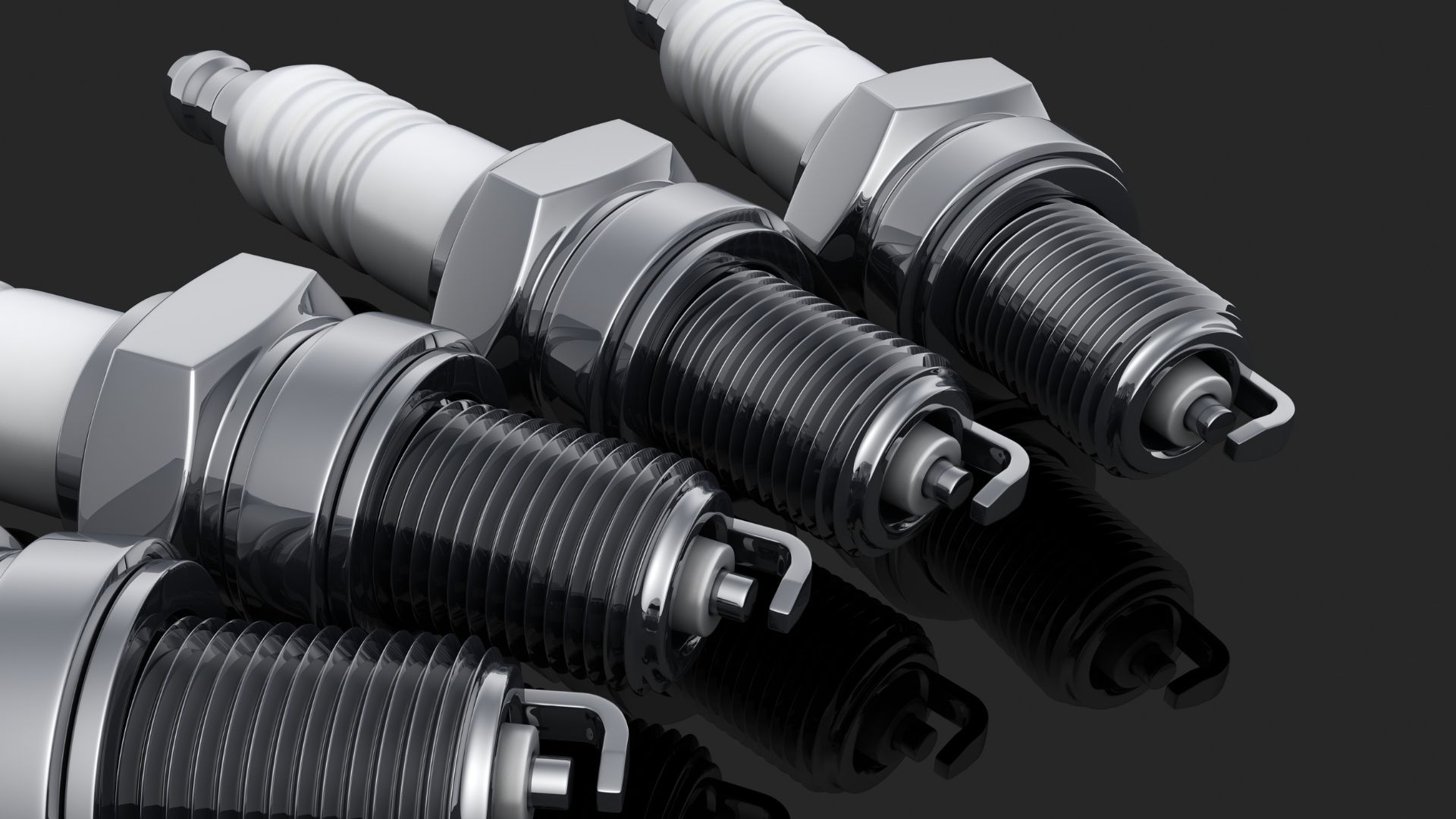Spark Plugs are aptly named. They create the spark that combusts the air/fuel mixture in the engine. Therefore, faulty plugs can interfere with a vehicle’s operations.
You can blame smoke from the exhaust on faulty plugs. The air/mixture is too rich to support combustion in the engine. However, in this particular situation, the car will produce black smoke. Don’t be so quick to blame the white smoke on the spark plugs.
Can Spark Plugs Cause White Smoke?
People don’t associate bad spark plugs with white smoke. Instead, they expect to observe the following symptoms:
- Either the engine won’t start, or it will struggle to start.
- Either the car won’t accelerate, or it will accelerate slowly.
- The vehicle’s fuel consumption will spike.
- Expect frequent misfires. This is where the car sputters, shakes, and seemingly loses power.
- The vehicle will generate unusual sounds while idling.
As you can see, there is no mention of white smoke. Some people blame white smoke on misfires, and since spark plugs occasionally cause misfires in a vehicle, you could indirectly draw a line between spark plugs and white smoke.
However, misfires are more likely to generate black smoke because of the unburnt fuel in the cylinder.
You can’t diagnose your vehicle’s symptoms without understanding the colors of the smoke a car makes. These are the basics:
- Blue – Oil is burning in the engine. A leak allowed oil to mix with the fuel in the combustion chamber.
- Grey – Burning oil, faulty transmission vacuum modulator, or a clogged air filter. You should also check the turbocharger for defects.
- Black – The engine is burning a lot of fuel. Your problems most likely originate from the intake components.
- White – You have burning coolant in the engine or condensation accumulated in the exhaust system.
This tells you everything you need to know. You get white smoke when the engine burns coolant. But the spark plugs have nothing to do with the coolant.
How Can Spark Plugs Cause White Smoke?

Are you sure the smoke you see is white? Or is it bluish-white? According to Auto V Fix, oil can emit whitish smoke when it enters the combustion chamber. This happens because of a leak or if you add too much oil. The substance will flow past the piston rings and valve seals. It will mix with the fuel and air, burning to generate white smoke.
This is a bigger deal than you realize because excess oil can compromise the crankshaft and engine. Additionally, total energies UK expects excess oil to ruin the spark plugs. In other words, instead of faulty spark plugs causing the white smoke, the factors responsible for the white smoke will harm the spark plugs.
Some people connect white smoke to the spark plugs because they saw oil on the spark plugs while taking them out. They think oil from the spark plugs somehow dripped into the combustion chamber. But that simply proves that you have a blown gasket, hence the leak.
Champion Auto Parts wants you to look for oily deposits on the electrodes of fouled plugs.
If it isn’t oil, the substance is coolant fluid that leaked into the cylinders because of the damaged gasket. This will harm the spark pugs in the long run. Ultimately, you can’t blame the spark plugs for the white smoke.
White Smoke From Exhaust After Changing Spark Plugs – Why?
To find the connection between the white smoke and the spark plugs you changed, you must first identify the factors that generate white smoke in a car. They include:
1). Water
Do you see white smoke or vapor? If you allow your car to go unused for a few days, water will condense in the exhaust. When you start the car, the heat from the exhaust will generate smoke when it evaporates the water.
Changing the spark plugs has nothing to do with condensation in the exhaust. Therefore, you can ignore this issue.
2). Worn Out Head Gasket
The head gasket is either old or worn out, exposing the coolant to high temperatures. Some people blame this issue on cracks in the engine block. But engine blocks don’t crack every day. The gasket seal will fail long before the engine block cracks.
Unless you tampered with the head gasket while changing the spark plugs, the spark plugs have nothing to do with this occurrence. Spark plugs cannot cause a coolant leak. If anything, the coolant leak will foul the spark plugs.
3). Damaged Intake Manifold Gasket
Does the white smoke have a sweet scent? You still have a coolant leak. But if you replaced the head gasket and the white smoke persisted, the intake manifold gasket is probably damaged. Because the coolant fluid cools the intake manifold, a damaged manifold gasket will result in a leak.
But again, a spark plug change has nothing to do with the manifold gaskets. Therefore, you can’t blame the spark plug change on a leaking intake manifold gasket.
4). Leaking Turbo
It has become common in some circles to blame white smoke on too much boost. However, you need a technician to troubleshoot your vehicle in such circumstances to determine whether or not you have a leaking turbo.
A leaking turbo will expose oil and coolant to high temperatures. Do you have a valve leakage? This is another concern. But once more, this has nothing to do with the spark plugs. You cannot connect a leaking turbo or excessive boosting to a spark plug change.
5). Cracked EGR Cooler
If you have a European vehicle, it may feature an EGR cooler. White smoke with a sweet scent points to condensed coolant, which many technicians associate with cracked EGR coolers. This is another complication that requires a technician’s direct involvement.
As you can see, white smoke has nothing to do with spark plugs. Therefore, you cannot blame white smoke on a change in the spark plugs. Sometimes, you have oil in the plug wells because of a leak in the vehicle. That oil can drain into the cylinders when you change the plugs.
But the primary source of the white smoke is the oil leak, not the spark plugs. Concentrate your search on the coolant before you blame any other component. Motor Trend suggests checking the engine oil for foam.
Pull the dipstick out. The bubbles you see in the oil signify the presence of coolant. You should also inspect the coolant. Remove the radiator cap and look for oily foam to confirm that engine oil has invaded the coolant.
Depending on the nature of the leak, the vehicle may overheat because you’re losing coolant. Any layperson can change the spark plugs. However, the factors that generate white smoke require a licensed expert to identify and resolve because they have nothing to do with the spark plug change.

